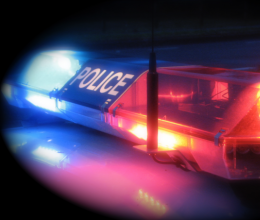
For years, the Grand Rapids Police Department solicited business owners to sign “Letters of Intent to Prosecute Trespassers.” These letters did not articulate a business owner’s desire to keep a specific person off their property and were not directed at any particular person. Instead, police officers used these generalized letters to decide for themselves who does not “belong” on premises that are generally open to the public. In many cases, the police arrested people who did nothing wrong, including patrons of the business. In 2013 the ACLU brought a federal lawsuit to challenge the use of these letters to make arrests without the individualized probable cause required by the Fourth Amendment. The plaintiffs include Jacob Manyong, who allegedly “trespassed” when his vehicle entered a business parking lot for several seconds as he pulled out of an adjacent public parking lot, and Kirk McConer, who was arrested for “trespassing” when he stopped to chat with a friend as he exited a store after buying a soda. An expert retained by the ACLU for the case found that African Americans are more than twice as likely to be arrested for trespassing than whites. In 2018 Judge Paul Maloney also ruled in our favor in the federal case. The city paid our clients damages in April 2019, and we were able to reach a settlement on attorneys’ fees in January 2020. The city has also made significant changes to the use of the no-trespass letters. (Hightower v. City of Grand Rapids; ACLU of Michigan Attorneys Miriam Aukerman, Michael J. Steinberg and Marc Allen; National ACLU Attorney Jason Williamson; Cooperating Attorneys Julia Kelly and Bryan Waldman.)